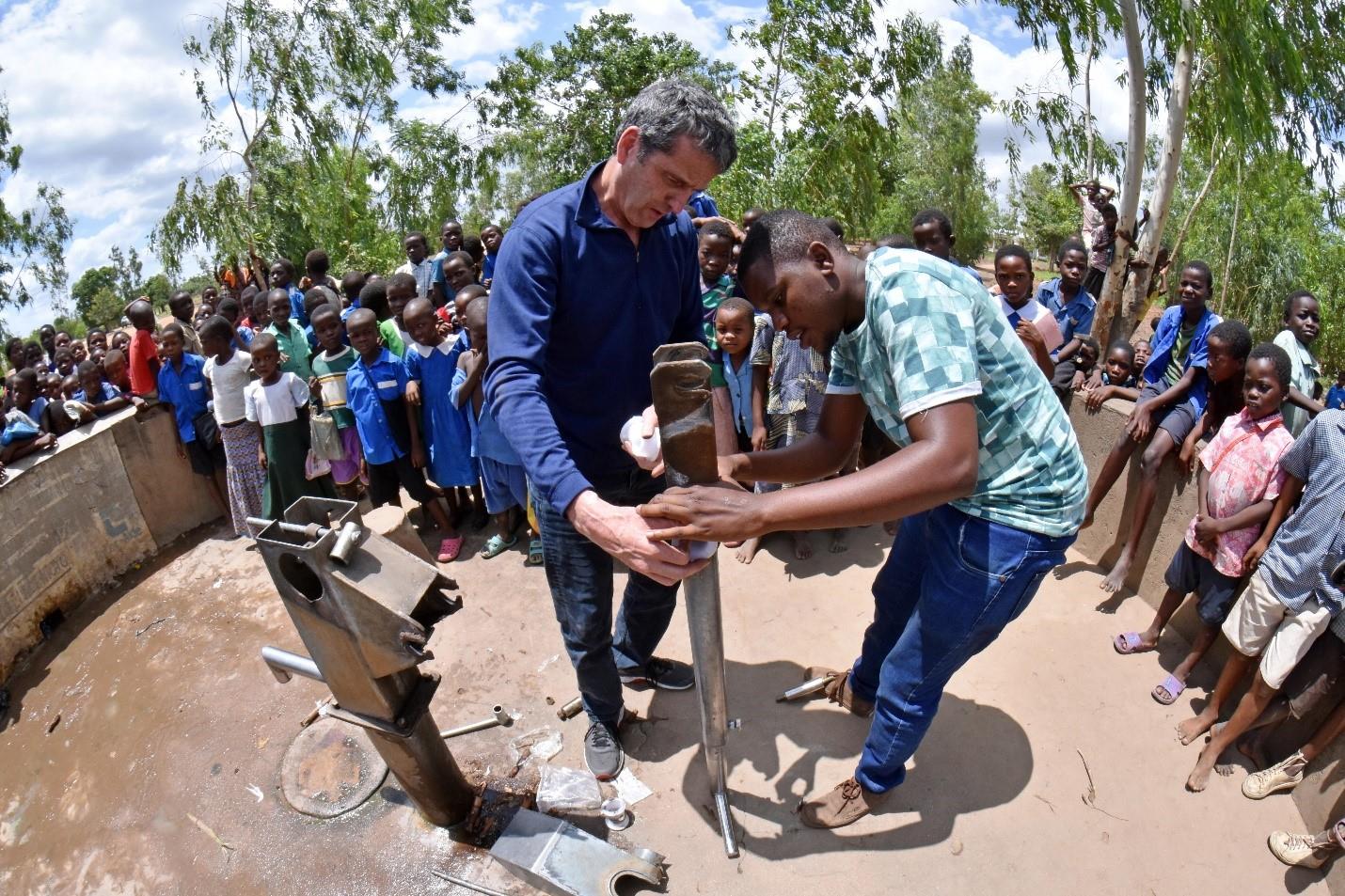 This past week our featured speaker was Gerard Dalziel, Program Engineer for Engineers Without Borders-USA. Gerard spoke via Zoom on the partnership between Rotary and EWB . EWB’s program currently includes 378 projects involving 189 chapters, including 50 in the USA and are working on many of them with Rotary. Highlighted were projects including local involvement (CSU and RCFC) and Carroll College. The meeting and presentation recording are at https://us02web.zoom.us/rec/share/ZxrCuYxktEblEvRDxFvfp_zlHW-wxhIdTQzCdrvHKwIoVtDFCezhAVtQEn3bujb3.0lLT5aA8Yibe3wlF
This past week our featured speaker was Gerard Dalziel, Program Engineer for Engineers Without Borders-USA. Gerard spoke via Zoom on the partnership between Rotary and EWB . EWB’s program currently includes 378 projects involving 189 chapters, including 50 in the USA and are working on many of them with Rotary. Highlighted were projects including local involvement (CSU and RCFC) and Carroll College. The meeting and presentation recording are at https://us02web.zoom.us/rec/share/ZxrCuYxktEblEvRDxFvfp_zlHW-wxhIdTQzCdrvHKwIoVtDFCezhAVtQEn3bujb3.0lLT5aA8Yibe3wlFEngineering student volunteers at CSU have played and continue to play an important role in the Pine Ridge Community Center. This obviously benefits the Center but also the student experience, at times described as “life-changing” by the volunteers. As many members know, RCFC has been involved in El Salvador in four local communities with successful and sustainable projects involving wells, water supply and water quality. For example, the La Criba Project now supplies nearly 200 homes with running water. Gerard noted that such projects involve a 5 year commitment and are expected to be sustainable over the long haul.
The Carroll College Student Chapter in Helena, MT actively supports the Santa Maria Home for Children. This impacts the lives of 200-300 children and now houses the elderly providing a complimentary mix of young and old. Projects there have historically focused on water supply and waste water management, and more recently community health and irrigation ditches (leading to increased crop yield which supplies income for the Home).
The partnership of EWB-USA and Rotary is further demonstrated by the work of the Denver Professional Chapter. This collaboration works in four communities in Ecuador, two in Madagascar, as well as Guatemala and Malawi. In Madagascar wells have been refined to supply a consistent source of clean water. Projects in Guatemala were in response to the 2018 volcano eruption with replacement of 6 pedestrian bridges essential to the local economies. Malawi projects include a health care facility and water supply rehabilitation.
How has the 2020 COVID crisis affected EWB? Because of travel bans, development of remote implementation has been ramped up. Reliance on local workers and expertise is now essential as are in-country reporting systems to monitor projects. These measures will likely be continued into the near future with more reliance on “on-the- ground resources”.
Once again, the presentation was followed by a robust Q & A including questions on how projects are selected, what the effects are on CSU student volunteers, what engineering disciplines are utilized, what are the risks to volunteers abroad, what unintended consequences have been observed and how best to increase sustainability of these efforts.